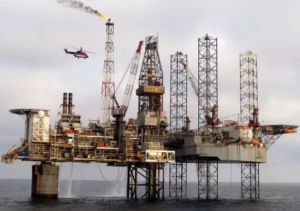News
Danish oil production decreases yet again
This article is more than 8 years old.
The last time the North Sea yielded such a small return was in 1992

More water, less oil coming up (photo: Energistyrelsen)
For the eleventh straight year, Danish oil production in the North Sea has decreased. Now it’s at the same level it was in 1992, according to a new report from the energy authority Energistyrelsen (here in Danish).
The figures reveal that oil production in the North Sea fell to 9.1 million cubic metres – vastly lower than the 22.5 million cubic metres in 2004, when levels peaked.
“Danish oil production in 2015 was about 5 percent lower than expected,” the report found.
“There has been a focus on preventive maintenance and well maintenance, while continuing the development of the South Arne field with a [new] northern platform. Production from the new wells via South Arne’s northern platform and Tyra SE has contributed to lessening the fall in production.”
READ MORE: New Danish technology to enhance oil recovery in the North Sea
More H20 coming up
Meanwhile, natural gas production remains about the same compared to 2014 thanks to the production of 3.8 billion normal cubic metres (NM3).
As oil fields age, they need more water injected into them to force up the oil. Last year 80 percent of the liquid retrieved from the fields was water – a 9.4 percent increase compared to the year before.
(photo: Energistyrelsen)











































